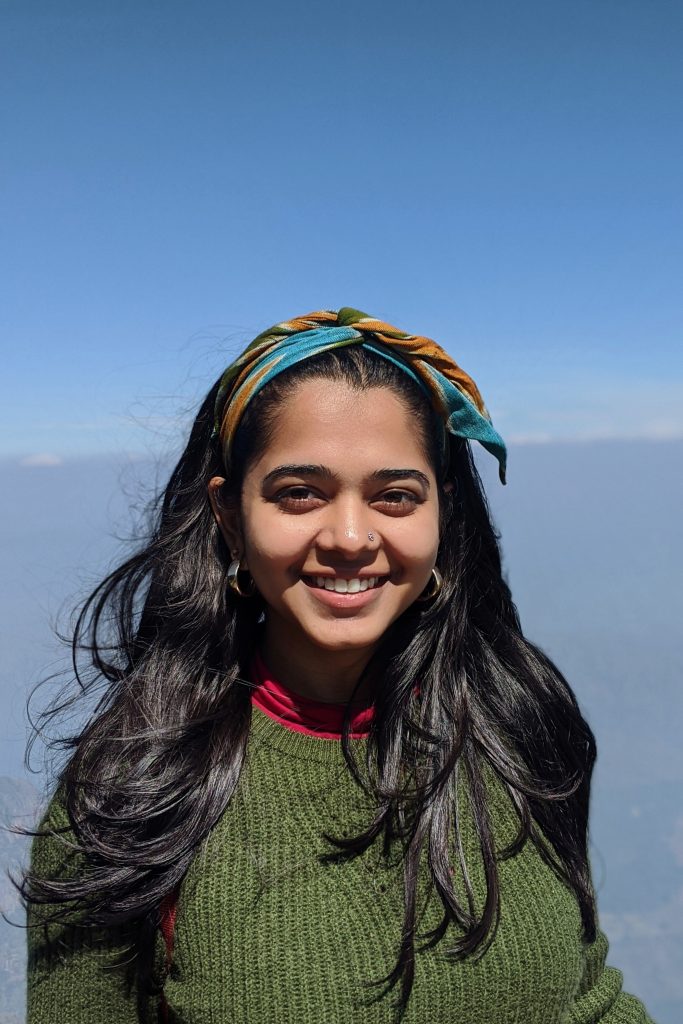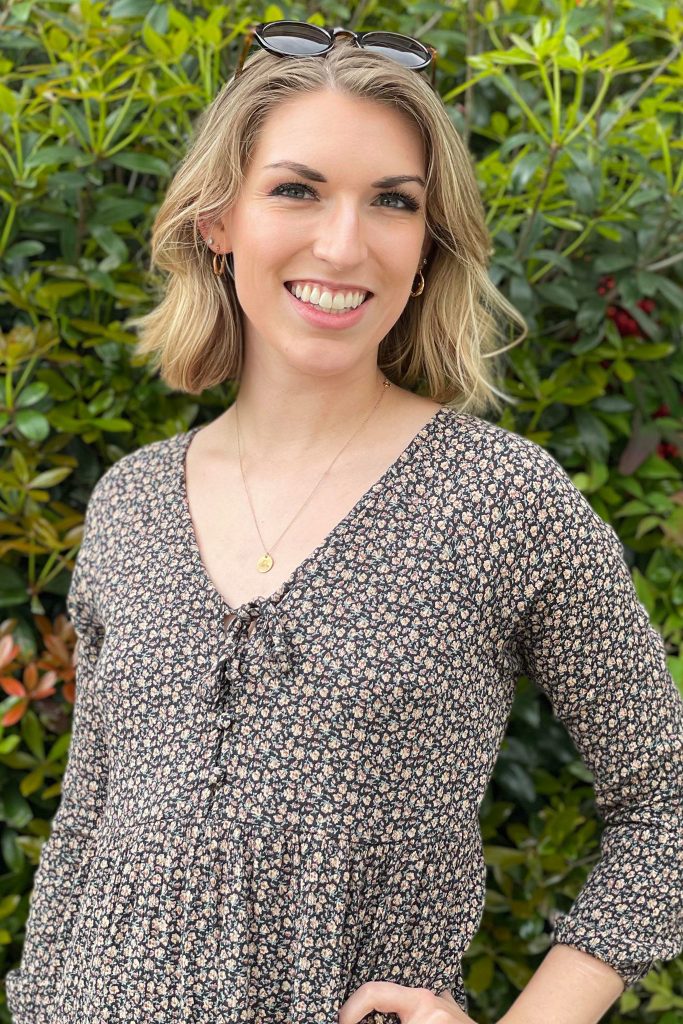
Dr. Emily S. Pingel
I never imagined that I would fall in love with São Paulo. Having grown up in Appalachia, big city life felt intimidating. But from the moment that I set foot in the Bom Retiro health post, I knew a journey of sorts had begun.
With the support of a Fulbright Research Award, a Boren Fellowship, and the Bom Retiro community health team, I conducted an ethnographic study of how patient care unfolds across sociocultural and linguistic difference. I explore how health professionals – including community health workers, doctors and nurses – construct racialized understandings of local residents that in turn affect the approach to patient care. I also investigate how digital technologies, such as WhatsApp, shape and are shaped by women’s emotional desires in the context of everyday life in Bom Retiro.
My research employs participant observation – both within the clinic and out in the neighborhood – alongside in-depth semi-structured interviews with patients and providers. In 2021, I successfully defended my dissertation, entitled “Primary Care and the Reproduction of Health Inequity in a Central São Paulo Neighborhood.” The next stage of my career will begin in June 2021, as a Presidential Management Fellow in the Division of HIV/AIDS Prevention at the Centers for Disease Control and Prevention.
To learn more about my work, please visit my academic homepage.
Current Team Members

Surbhi Shrivastava
Working on issues of violence against women (VAW) in India, I often heard about Brazil in comparison to my country. These parallels stemmed from both being populous and large emerging economies where VAW is a major public health concern. I wondered if there are linkages between understanding and alleviating this issue in India and Brazil, and that is what I attempt through my work with the Lesser Research Collective.
I hold a Bachelor’s Degree in Dental Surgery from Manipal University, India and a Master of Public Health in Health Policy, Economics and Finance from Tata Institute of Social Sciences, India. Prior to beginning my doctorate in Sociology at Emory University, I worked in public health research with non-profit organizations in India. I focused on women’s health issues and my work on violence against women during childbirth in India motivated me to pursue a doctoral degree.
As part of the Lesser Research Collective, in the last two years, I have used population-level DATASUS data on births among women in São Paulo, Brazil to understand reasons behind high c-section rates in the country. I augmented my statistical interpretations with a field visit to São Paulo in Summer 2022 where I interacted with primary health care providers, practicing obstetricians, and medical students to understand how birth takes place. This research will tie into my doctoral dissertation work which has the tentative title “A tale of two Souths: Understanding birth in India and Brazil.”

Alexandra Llovet
Over two summers in Brazil, I compiled four types of sources from 1924 to 2018: (1) literary sources, (2) visual sources, (3) medical records, and (4) oral narratives. Using literary analysis of themes and representations, I analyze visual and literary sources of Leprosy in Brazil.
I gathered oral narratives of healthcare workers and patients through snowball sampling in two leprosaria, a state reference hospital, and local clinics. I used medical records (1920s-1980s) from the Emilio Ribas Public Health Museum’s archives in São Paulo that show a narrative of the patient’s lives in the leprosaria, detailing runaways, removed children, etc. and clinical treatment. The pool of sources helps understand life when labelled a “leper” in Brazil.
Through the diversity of sources across time and intended fields (literature, art, public health), I show the continuity of stigma and fear despite leprosy’s curability since 1941. In my thesis analyze the diverse origins of the stigma of leprosy and suggest that the cultural phenomena surrounding leprosy has a longstanding impact on patient’s quality of life.
Former Team Members

Dr. Sara Kauko
I joined Dr. Lesser’s research team in Sao Paulo as a research assistant and photographer in June 2016. I had never set my foot in the city before and spoke Portuguese on the level of a six-year old. Nevertheless, as an anthropologist and Latin Americanist, I found it fascinating to be able to participate in the Bom Retiro research project.
I accompanied the task team from Bom Retiro’s health center a few times a week as they attended to patients in their homes. Wearing my anthropologist’s hat, I was drawn to learning more about the patients’ backgrounds and present lives. Wearing my photographer’s hat, I documented these patient rounds and at the same time, the life in the neighborhood.
As a Spanish speaker, I learned Portuguese rather easily. My camera often mediated my interactions with people, which helped me to learn more. The time I spent in Bom Retiro eventually turned into an archive of hundreds of images and a photographic exhibition on one of the health center’s walls.
I wrote my doctoral dissertation on the relationship between socioeconomic mobility, race, and entrepreneurialism in northern Argentina, and graduated in the spring 2020. The difference between the vertical megalopolis of Sao Paulo and the flat provincial city in Argentina where I conduct research is colossal. Yet in both places, the human experience of ethno-racial exclusion and aspirations for upward mobility can be remarkably similar. Those similarities intrigue me. I hope to go back to Argentina’s Portuguese-speaking neighbor someday to explore them further.

Ayssa Yamaguti Norek
I am a Ph.D. student in the Department of History at Emory University, where I am the President of the Graduate History Society. My research relates to questions of health, gender, and prisons. As a member of the Lesser Research Collective, I have been conducting research about how COVID 19 has changed the treatment of chronic diseases in Atlanta, GA and São Paulo, Brazil. Using DATASUS statistics, I was the research assistant for “Committing to Continuity: Primary Care Practices during COVID-19 in an Urban Brazilian Neighborhood” Health, Education and Behavior (December 2020). Currently I am co-authoring a scientific paper with Dr. Lesser for Plural: Revista de Ciências Sociais for a special issue on the novel coronavirus.
I hold a bachelor’s degree in Social Sciences from the Getulio Vargas Foundation, and I was awarded a professional license in History in the same institution. I have a master’s degree in the Social History of Culture from PUC-Rio, where I conducted research engaging with the mental health of female political prisoners in Talavera Bruce Penal Institute and Tiradentes Penitentiary between 1968 and 1979.
I chose to get my Ph.D. at Emory University so that I could work with Dr. Lesser and his multidisciplinary team on the connections between incarceration and public health in Brazil and the United States between the end of World War II and the present.

Daniella Gonzalez
I had the pleasure of working in Team Lesser in the Bom Retiro neighborhood last summer. While in the Bom Retiro neighborhood, I joined physicians and nurses during medical appointments with pregnant patients (prenatal care) and women who had recently given birth. The physicians and nurses described their prenatal cases as either “planned” or “unplanned” on daily activity logs and the women’s medical files.
This led me to my research question, how do patients and healthcare providers of the clinic (physicians, nurses, and community agents) conceptualize family planning? In other words, what makes a pregnancy “planned” or “unplanned” for patients and providers? I spoke with women during their medical appointments to understand how they describe their own pregnancies and their definitions of a planned pregnancy. I then spoke to community agents, physicians, and nurses to ask about their own conceptualizations and whether they perceived differences in cases with women that stated planning their pregnancies and women that did not plan.
This information, along with demographic information found in women’s medical files, demonstrated that patients and providers did indeed conceptualize family planning in different ways. This gap between patient and provider must be closed to improve family planning services within the clinic. To do so, providers must acknowledge these conceptual differences and engage their patients in more conversations on family planning and contraception use.
I wrote about this in my thesis.

Doris Cikopana
My honors thesis explores the topic of accessibility to health services in Brazil. The thesis is a case study of the UBS Bom Retiro, a health post/clinic in the neighborhood of Bom Retiro located in São Paulo, Brazil. The neighborhood is home to multiple immigrant groups such as the Bolivians, Koreans and Paraguayans.
This thesis aims to better understand how accessibility barriers work in this neighborhood and what initiatives has the staff taken to reduce these barriers. Another aim of this thesis is to analyze the level of access to health services by patients who do not speak Portuguese as a first language. Lastly, this thesis contains possible health policy suggestions that could provide solutions to accessibility barriers in UBSs that are located in neighborhoods with a similar demographic profile as Bom Retiro.
My research was supported by the Fox Center Undergraduate Humanities Honors Fellows Program.

Sabrina Jin
I learned the importance of remaining open to surprises in career development as I watched myself evolve from an entomology enthusiast into an aspiring medical anthropologist. Even so, traveling to Brazil for my research was the last thing on my radar.
I am working towards a B.S. in Biology and a B.S. in Anthropology and Human Biology with a concentration in Cultural Anthropology in the Emory College of Arts and Sciences. I participated in the Oxford Research Scholars program in 2019 with Dr. Emily McLean to investigate gene-environment interaction in Drosophila melanogaster before deciding to shift into the social sciences. Currently I work with Dr. John Pothen in the Emory Department of Sociology to study suburban gentrification in a small neighborhood in Atlanta. I am a staff writer for the Emory Undergraduate Medical Review, a third-year legislator on College Council, and a recipient of the 2021 Halle Global Fellow Award for international research.
I will conduct an ethnographic study on the Asian Brazilian populations of Bom Retiro and Liberdade, São Paulo, as a part of the Lesser Research Collective. My research investigates anti-Asian racism during the COVID-19 pandemic and explores the relation between racism, mental health seeking behaviors, and activism within an Asian diasporic context. During 2021 I will implement surveys and interviews in São Paulo and San Francisco for comparative analysis. I will also employ a mixed-methods approach involving web scraping on social media platforms to survey changes in the frequency of hateful language towards people of Asian descent. My fieldwork will contribute to my senior honors thesis, tentatively titled “The Effect of Racialized COVID-19 Discourse on the Health of Chinese Immigrants and Brazilians of Asian Descent,” and my goal of completing an MD-PhD in medical anthropology.

Savannah Miller
As a public health practitioner and scientist by training, I did not think taking language courses would lead me towards my master’s thesis topic. Yet for the two years I was at Emory for my Master’s of Public Health I worked with the Lesser Research Collective while taking Portuguese courses “for fun.” This led me to defending my thesis entitled “A Qualitative Assessment of Water, Sanitation, and Hygiene in an Urban Working-Class Neighborhood of São Paulo, Brazil.”
I graduated from the University of North Carolina Wilmington in May 2020 with a B.S. in Biology, a B.S. in Public Health, and a minor in Spanish. As a National Oceanic and Atmospheric Administration Hollings Scholar, I conducted research with the Sitka Tribe of Alaska on subsistence food safety and paralytic shellfish toxins. I recently graduated in May 2022 from the Global Environmental Health MPH program at the Rollins School of Public Health at Emory University.
As a previous member of the Lesser Research Collective, my research focus was on accessible and equitable water, sanitation, and hygiene (WASH) and the challenges rapid urbanization poses to the provision of adequate WASH services. This is especially noticeable in the highly urbanized Brazilian state of São Paulo, where 96.56% of the state’s total population of over 44 million lives in urban areas. WASH-related diseases, including malaria, dengue, Zika, cholera, tuberculosis, and other diarrheal illnesses, have been a persistent problem in Brazil. The goal of this study was to use qualitative research methods, especially thematic analysis of community ethnography field notes, to illustrate the reality of daily-life for those living in an urban-working class neighborhood of São Paulo city. By analyzing historical and contemporary WASH policies in Brazil, this research provides better understandings of inconsistencies between public policy and the reality of daily life in the context of WASH. The study had two primary questions 1) “How has the prioritization of sanitation by policymakers, both historical and contemporary, shaped the health of the urban working-class in Brazil?” 2) “How do living and working conditions among the urban working class relate to the creation and/or implementation of water, sanitation, and hygiene (WASH) services?” Findings from this study suggest that local authorities should employ a bottom-up, equity-centered lens emphasizing distributive justice when creating and implementing WASH-related public policies to ensure inequities are not overlooked.I now work for an international pharmaceutical company in their Vaccines Division, assisting pediatric and primary care offices across Georgia to better improve their vaccination rates and patient population health. I continue to stay in contact with my fellow Lesser Research Collective colleagues and hope to one day visit Brazil!

You must be logged in to post a comment.